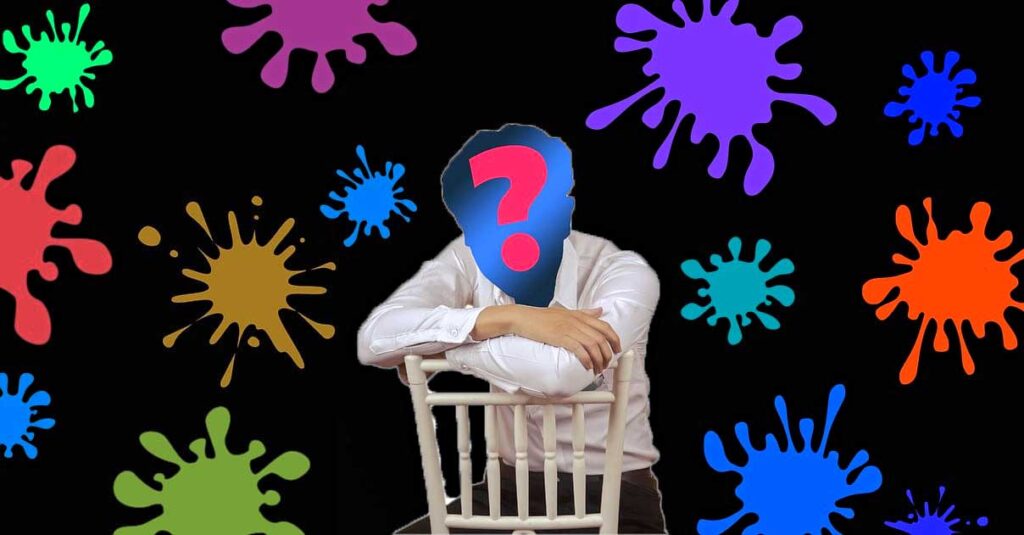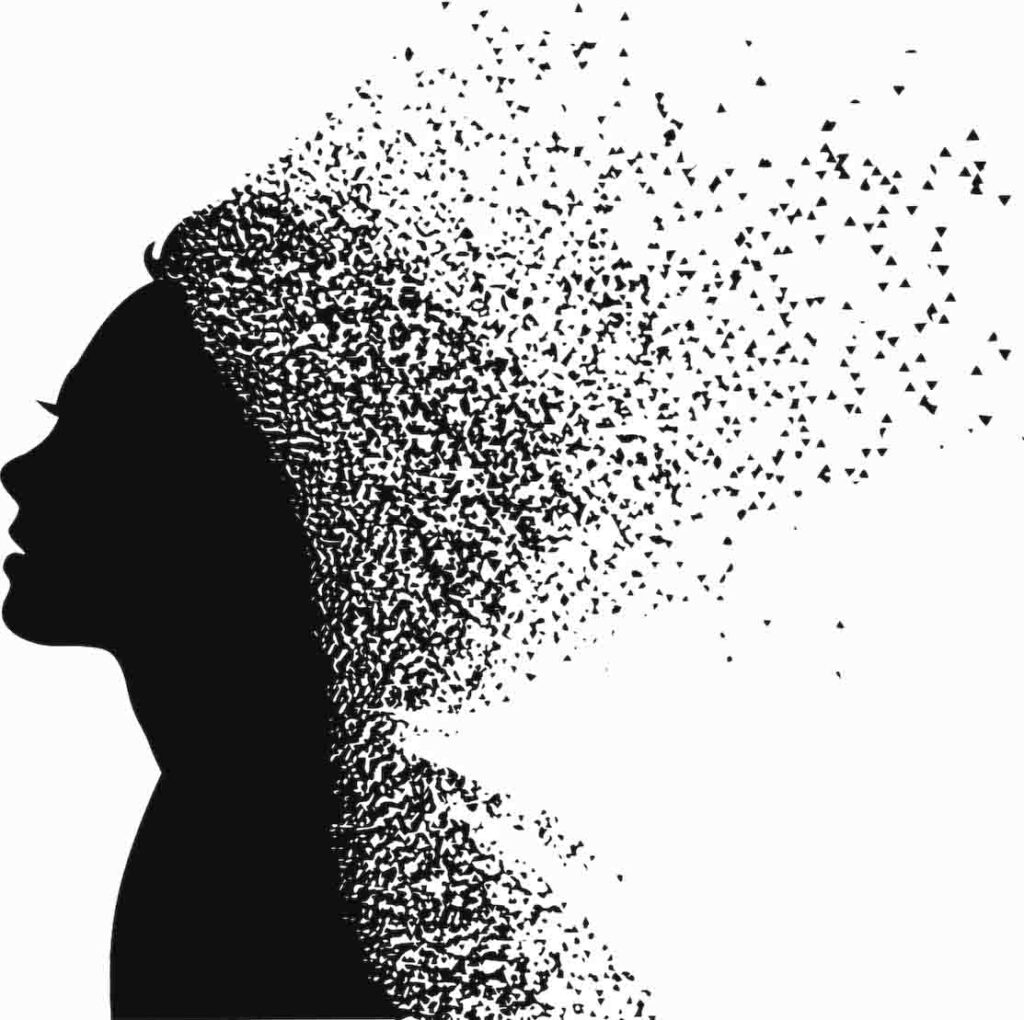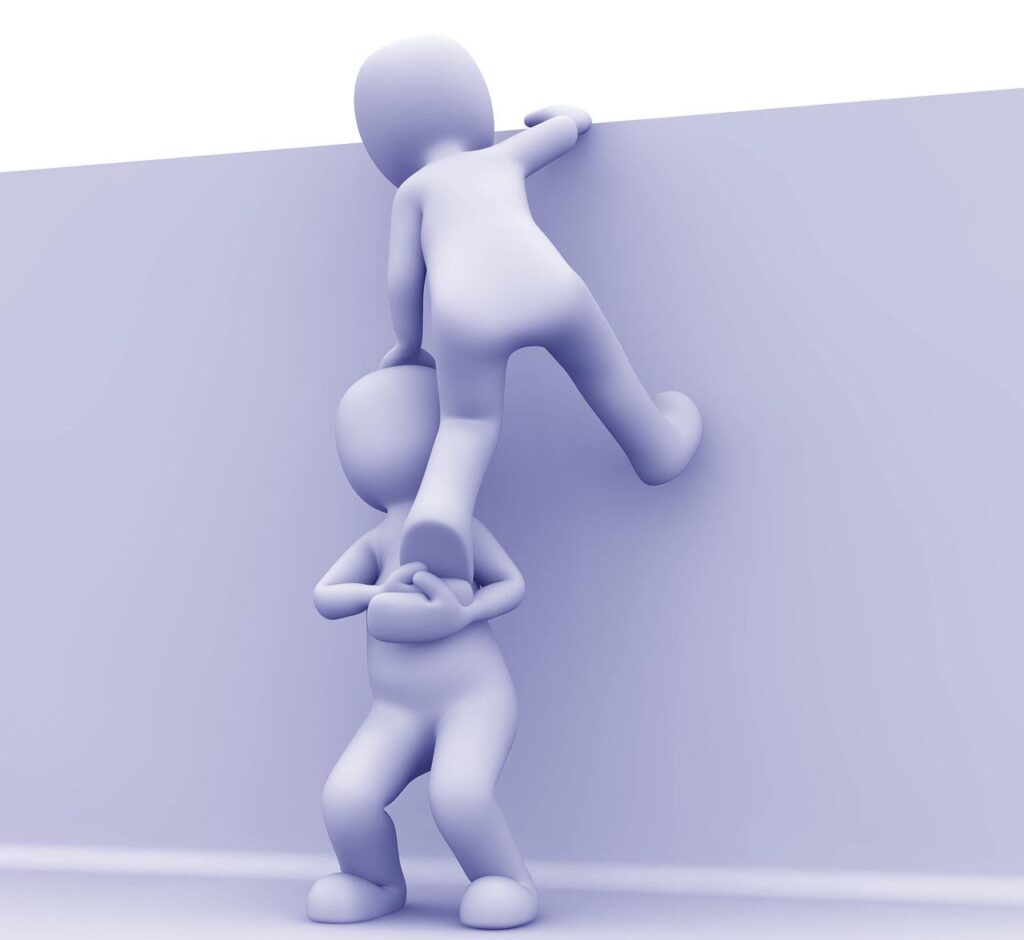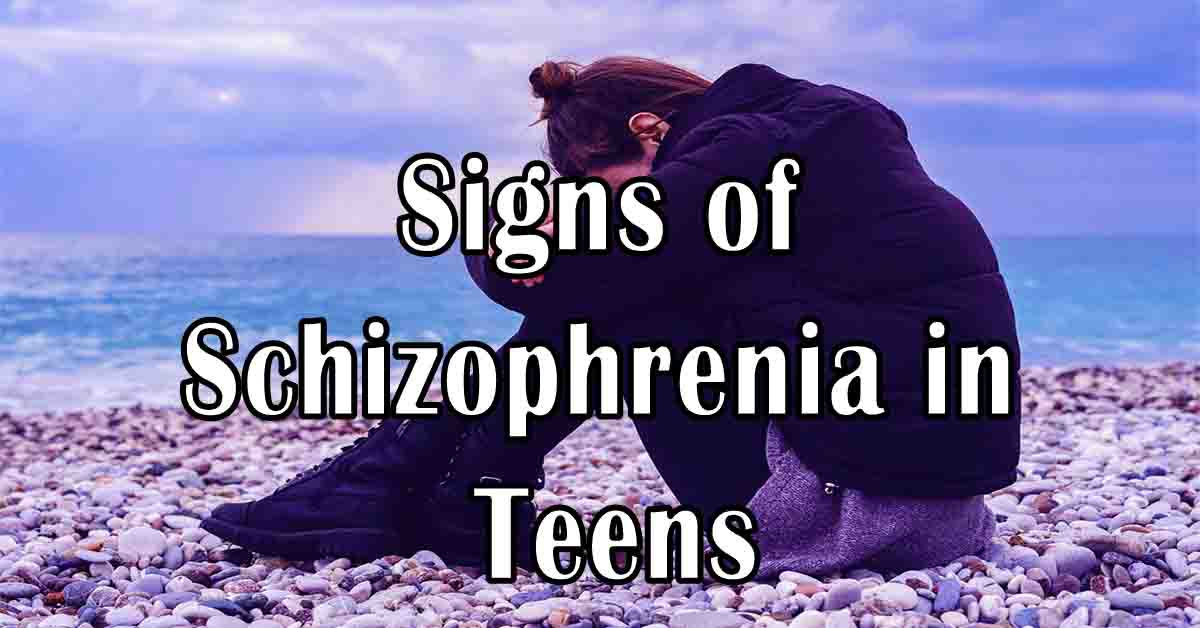Early Signs of Schizophrenia in Teens
Identifying the early signs of schizophrenia in teens is crucial for prompt intervention and effective management. Schizophrenia is a complex, chronic mental health condition, and its early onset during teenage years can significantly disrupt a young person’s life. The challenge in pinpointing schizophrenia signs in teens arises from the natural developmental changes of adolescence, making it imperative to recognize the nuanced signs of schizophrenia in a teenager. With recent research shedding light on the prevalence of schizophrenia in adolescents, awareness and early detection are paramount for better outcomes and quality of life for those affected.
Key Takeaways
- Understanding the early signs can lead to timely treatment.
- Adolescence presents unique challenges for diagnosing schizophrenia.
- Recent studies emphasize the importance of early detection.
- Recognition of subtle signs is key during the teen years.
- Early intervention may alter the course of the condition.
Schizophrenia in Adolescent Development
The intersection of schizophrenia with the critical period of adolescent development presents unique challenges and manifestations. Adolescence is marked by drastic psychological and physical changes, and the onset of schizophrenia symptoms in teens during this time can dramatically affect their trajectory into adulthood. Below, we explore how teenage signs of schizophrenia may diverge from adult presentations and the underlying factors that contribute to these variations.
Schizophrenia Symptoms in Teens: During adolescence, initial schizophrenia symptoms may mimic or hide behind typical developmental behaviors, making detection significantly difficult. These symptoms often encompass subtle shifts in a teen’s perception, thinking, and emotional responses that exacerbate as the disorder progresses. It’s crucial to discern these early teenage signs of schizophrenia to facilitate prompt intervention, which can positively impact the course of the illness.
| Teen Symptom Presentation | Adult Symptom Presentation | Developmental Consideration in Teens |
|---|---|---|
| Social withdrawal | Social aloofness | It may be mistaken for typical teen independence-seeking behavior |
| Drop in academic performance | Declining work performance | This could be attributed to academic pressure or lack of motivation |
| Sudden disinterest in activities | Loss of interest in hobbies | Often overlooked as moodiness or changing interests |
| Changes in sleeping patterns | Insomnia or hypersomnia | This can be conflated with erratic teen sleep habits |
| Unusual or exaggerated behaviors | Bizarre actions or speech | Misinterpreted as seeking attention or rebellion |
Developmental psychology informs us about the complexity of diagnosing schizophrenia during the teenage years. Psychological factors include the still-developing prefrontal cortex, responsible for judgment and decision-making, which can profoundly influence the presentation of symptoms. Furthermore, teens may describe their experiences and symptoms differently or may lack the ability to articulate them altogether, compared to adults with a fully developed cognitive framework.
Neurological factors also play a critical role. The ongoing brain maturation process in teens, including synaptic pruning and myelination, plays a significant part in the emergence of schizophrenia symptoms. This stage of development is both a critical window for the onset of schizophrenia and an opportunity for early intervention, as reflected by various studies and backed by institutions such as the American Academy of Child & Adolescent Psychiatry.
- Increased importance of peer relationships and social standing
- Diverging self-identity and sense of independence
- Differentiated patterns of brain development and hormonal changes
- Varied responses to stress and environmental factors
- Distinctive interpretations of internal and external experiences
The intricate task of identifying schizophrenia symptoms in teens necessitates a comprehensive grasp of these developmental peculiarities, emphasizing the vital need for informed recognition and support from parents, educators, and healthcare professionals alike.

Identifying Behavioral Changes in Teens
As professionals and caregivers strive to understand the complexities of adolescent behavior, it’s pivotal to recognize the possible signs of schizophrenia in teenage males and observe the early signs of schizophrenia in teenage females. Distinct patterns of change often emerge, reflecting potential schizophrenia symptoms in teenage males. In this section, we will elucidate the behavioral modifications that may signal the onset of schizophrenia.
Shifts in Social Dynamics
Social interactions can be profoundly affected by teens experiencing schizophrenia. Once social and outgoing individuals may begin to withdraw from friends, avoiding gatherings they previously enjoyed. This shift could include a marked decrease in communicating with peers and family members, sometimes leading to isolation.
Academic Performance and Cognitive Alterations
Academic achievements often mirror the cognitive state of teenagers. An unexpected drop in grades or difficulty concentrating on tasks at hand may be an early warning sign. Teens might display trouble with memory or exhibit speech patterns that are disjointed or lacking in coherence, all of which can impact educational performance.
Unusual Sleep Patterns and Physical Activity
Sleep disturbances often accompany schizophrenia, with teenagers either sleeping excessively or facing severe insomnia. Similarly, a stark change in levels of physical activity—either a sudden lack of energy or excessive restlessness—can be a subtle yet significant indicator of underlying issues.
Signs of Schizophrenia in Teens
As we approach the subject of schizophrenia in the youthful population, it is crucial to discern the common yet often misunderstood indicators of this condition. Parents and guardians, educators, and healthcare providers should be equipped with knowledge about schizophrenia symptoms in teenage females, schizophrenia signs teenagers may exhibit, and the early signs of schizophrenia in teenage males. Being vigilant towards these signs is instrumental for timely intervention and support.
Warning Signs and Initial Symptoms
The initial stages of schizophrenia can manifest subtly and may be misconstrued as typical teenage behavior. However, there are critical warning signs to observe:
- Withdrawal from social interactions
- Decrease in academic performance
- Altered sleeping patterns, often leading to insomnia or excessive sleeping
- Unexplained irritability, hostility, or suspicion
- Lack of motivation and apathy towards activities once enjoyed
Understanding these signs can bridge the gap between unrecognized symptoms and proactive diagnosis, particularly when it comes to early signs of schizophrenia in teenage males and females.
Recognizing Hallucinations and Delusions
Hallucinations and delusions represent more pronounced and disruptive symptoms inherent to schizophrenia:
- Auditory Hallucinations: Hearing voices or sounds that are not present.
- Visual Hallucinations: Seeing objects or entities that others do not see.
- Delusions of Grandeur: Holding false beliefs of possessing extraordinary powers or identity.
- Paranoid Delusions: The irrational belief that others are plotting harm or manipulation.
While hallucinations are more associated with schizophrenia symptoms in teenage females, paranoia tends to be a common schizophrenia sign in teenagers, regardless of gender.
Understanding Disorganized Thinking
Disorganized thinking is a vital aspect of schizophrenia that affects communication and the ability to maintain a coherent conversation. Indications of disorganized thinking include:
- Incoherent speech patterns
- Rapidly shifting topics without clear transitions
- Difficulty organizing thoughts or completing tasks
- Using made-up words or phrases that only have meaning to them
This disorganization can be particularly troubling for teenage males and is often an early sign of schizophrenia in teenage males that requires immediate attention from mental health professionals.

Signs of Schizophrenia in Teenage Males vs Females
Recognizing the early signs of schizophrenia in teens is vital for timely intervention, yet these signs can present differently across genders. This distinction is crucial as it can influence both diagnosis and treatment efficacy. Research indicates that the onset of schizophrenia tends to occur earlier in males, with early signs of schizophrenia in teenage males often emerging in late adolescence. While both genders exhibit some overlapping symptoms, the pattern and frequency of certain signs can vary distinctly.
Behavioral Indicators in Male Teens: Often, male teenagers with early schizophrenia display more pronounced behavioral changes. These may include:
- Heightened withdrawal from social situations
- Increased tendency toward suspicion or paranoia
- Noticeable decline in academic performance
Presentation in Female Teens: In contrast, female teenagers might develop symptoms at a slightly later age, and these can often be subtler or mistaken for typical teen angst. Their signs could manifest as:
- Disrupted thought processes, yet less visible due to better communication skills
- Emotional disturbances, predominantly internalized
- A decline in personal hygiene or self-care
While schizophrenia signs in teens can present a diagnostic challenge, understanding the nuances between genders is imperative. Health professionals often note that teenage males may exhibit more obvious signs of disturbance, whereas females might display more affective symptoms, such as mood fluctuations. The following table provides a comparative view of how these early indications may diverge between the sexes:
| Symptom | Teenage Males | Teenage Females |
|---|---|---|
| Onset of Symptoms | Typically earlier, between 15-20 years of age | Generally later, around 20-24 years of age |
| Social Withdrawal | More common and pronounced | Less apparent, may maintain some social connections |
| Academic Performance | Noticeable drops may include behavioral problems | Subtle decrease, often attributed to a lack of interest |
| Cognitive Changes | Cognitive deficits are more apparent, may struggle with communication | Cognitive disturbances might be masked by better verbal skills |
Recognizing these gender-specific manifestations of early signs of schizophrenia in teenage males and females encourages a more tailored approach to early intervention. By paying close attention to these patterns, caregivers and professionals can better support teens in navigating this complex mental health landscape.
Detailed list of Signs of schizophrenia in teenagers
- Hallucinations:
- Hearing voices that others don’t hear.
- Seeing things that others don’t see.
- Sensing things on the skin or in the body that others don’t feel.
- Delusions:
- Holding strong, false beliefs that are resistant to reason.
- Believing in conspiracies or unrealistic scenarios.
- Feeling persecuted or targeted without evidence.
- Disorganized thinking:
- Trouble organizing thoughts coherently.
- Difficulty connecting ideas logically.
- Incoherent speech or conversation.
- Social withdrawal:
- Avoidance of social activities.
- Isolation from friends and family.
- Difficulty forming and maintaining relationships.
- Decline in academic or occupational performance:
- Deterioration in school grades or work performance.
- Difficulty concentrating and completing tasks.
- Loss of interest in once enjoyable activities.
- Emotional changes:
- Inappropriate emotional responses.
- Fluctuations in mood.
- Limited emotional expression.
- Changes in personal hygiene:
- Neglecting personal care, such as bathing and changing clothes.
- Disregard for grooming and cleanliness.
- Difficulty sleeping:
- Insomnia or excessive sleeping.
- Disturbances in sleep patterns.
- Difficulty in organizing daily activities:
- Challenges in planning and executing daily tasks.
- Forgetfulness and disorganization.
- Lack of insight:
- Inability to recognize the severity of symptoms.
- Unwillingness to seek help or treatment.
- Lack of awareness regarding changes in behavior.
Lifestyle Adjustments and Inclusive Activities
Engaging in a healthy lifestyle and inclusive activities plays a crucial role in the overall management of schizophrenia symptoms. Adjustments in daily routines, nutrition, exercise, and stress-reducing practices can vastly improve coping mechanisms. Additionally, participating in supportive social circles and engaging in activities that promote mental wellness are beneficial for teenagers confronting this condition.
| Aspect | Family Role | Professional Support | Lifestyle Adjustments |
|---|---|---|---|
| Early Recognition | Observing and noting early symptoms, seeking assessments | Diagnosis, professional evaluations | Monitoring changes, promoting awareness |
| Treatment Pathways | Support in treatment adherence, home care | Prescribing medication, psychological therapies | Ensuring a supportive home environment |
| Quality of Life | Emotional support, ascertaining safety | Crisis intervention, continuous care plans | Encouragement of social interaction, regular exercise |
Conclusion
Throughout this article, we have traversed the complex terrain of identifying signs of schizophrenia in a teenager. Understanding these signs is pivotal—not only for early intervention but also for changing the trajectory of this condition for affected youths. By meticulously discussing the various schizophrenia signs in teens, we aim to empower parents, educators, and healthcare professionals with the knowledge to spot potential warning signs. Recognizing schizophrenia symptoms in teens can be challenging; however, awareness and education can illuminate these early indicators.
The significance of timely action upon observing the early signs cannot be overemphasized. Early intervention may profoundly influence the wellness and quality of life of teenagers with schizophrenia. Our exploration highlighted the vital roles played by family support, professional guidance, and personalized care strategies. As we wrap up our discussion, let it be a reminder to remain observant and proactive, seeking the appropriate assistance that can foster resilience and hope in the face of schizophrenia.
In closing, we urge readers to continue educating themselves about this critical mental health issue. Awareness is the first step to action, and through a collaborative effort, society can offer a robust support system for teenagers grappling with schizophrenia. For further information and assistance, reaching out to reputable mental health organizations and professionals is recommended for anyone needing advice or help related to schizophrenia in teenagers.

FAQs(Signs of Schizophrenia in Teens)
Q: What are the early signs of schizophrenia in teens?
A: The early signs of schizophrenia in teens may include social withdrawal, loss of interest in activities, difficulty focusing or following through with tasks, a drop in academic performance, changes in sleeping or eating habits, a flat or blunted affect, and subtle signs of suspiciousness or paranoia.
Q: How do schizophrenia symptoms in teens differ from those in adults?
A: Schizophrenia symptoms in teens may be less pronounced or atypical compared to adults. Adolescents might display more mood-related symptoms, such as depression or anxiety, and their hallucinations and delusions can often be more restrained. Disorganized behavior might show up differently, presenting as a decline in personal hygiene or erratic academic performance.
Q: What behavioral changes should I look for if I suspect my teen has schizophrenia?
A: Behavioral changes that may signal schizophrenia in teens include noticeable shifts in peer group dynamics, isolation from family and friends, unexpected hostility or suspicion, decline in cognitive functions affecting academic achievement, and unusual sleep patterns or physical activities that reflect a significant change from their normal behavior.
Q: What are some warning signs and initial symptoms of schizophrenia in teens?
A: Warning signs and initial symptoms of schizophrenia in teens often include social isolation, odd or eccentric behavior, talking to oneself, a noticeable decline in school performance, a tendency to express bizarre or illogical ideas, and a family history of psychosis. It’s important to note that these symptoms can also be indicative of other developmental issues or mental health disorders, which necessitates a thorough evaluation by a mental health professional.
Q: How can I recognize hallucinations and delusions in my teenager?
A: Recognizing hallucinations and delusions in teenagers can be challenging, as they may not openly share these experiences. Subtle cues may include responding to unseen stimuli (indicating auditory hallucinations), expressing beliefs that are unrealistic or paranoid about being harmed or watched (likely signs of delusions), or describing visual or tactile experiences that don’t have a basis in reality.
Q: Are there differences in the early signs of schizophrenia between teenage males and females?
A: There can be differences in the presentation of early signs of schizophrenia between teenage males and females. Teenage males may show signs earlier and could exhibit more negative symptoms like apathy or lack of emotion. In contrast, teenage females may experience more affective symptoms, such as mood swings, and may develop symptoms at a later age. However, each individual’s experience can vary significantly, and it’s essential to seek a professional assessment if there are concerns.
Q: As a parent, what role can I play in managing early symptoms if my teen shows signs of schizophrenia?
A: As a parent, you can play a crucial role in managing early symptoms of schizophrenia by maintaining an open line of communication with your teen, paying close attention to their behaviors, advocating for a comprehensive evaluation by a mental health professional, providing a supportive and stable home environment, and educating yourself about the disorder to better understand and support your teen.
Q: What professional support and treatment options are available for teens showing signs of schizophrenia?
A: Professional support and treatment options for teens showing signs of schizophrenia typically include a comprehensive assessment by a mental health practitioner, medication such as antipsychotics to help manage symptoms, psychotherapy, family education, and support groups. In some cases, cognitive-behavioral therapy, social skills training, or school-based programs may be recommended.
Q: How can lifestyle adjustments and inclusive activities aid teens with schizophrenia?
A: Lifestyle adjustments and inclusive activities can provide structure, reduce stress, and promote socialization for teens with schizophrenia. Incorporating regular exercise, a healthy diet, and consistent sleep patterns can improve overall well-being. Participating in group activities, special interest clubs, or therapeutic recreational programs can help teens feel included and supported while protecting against social isolation.
Suggested Posts:
- Recognize Schizophrenia in Teens by WebMD

